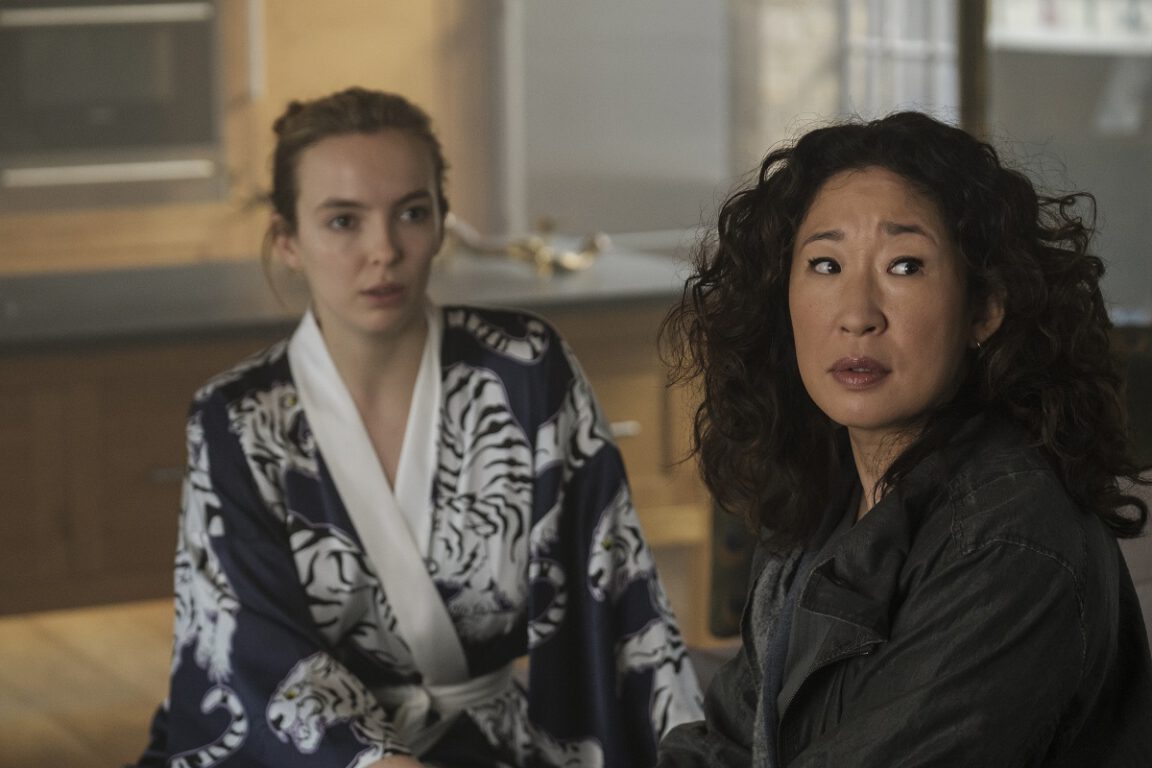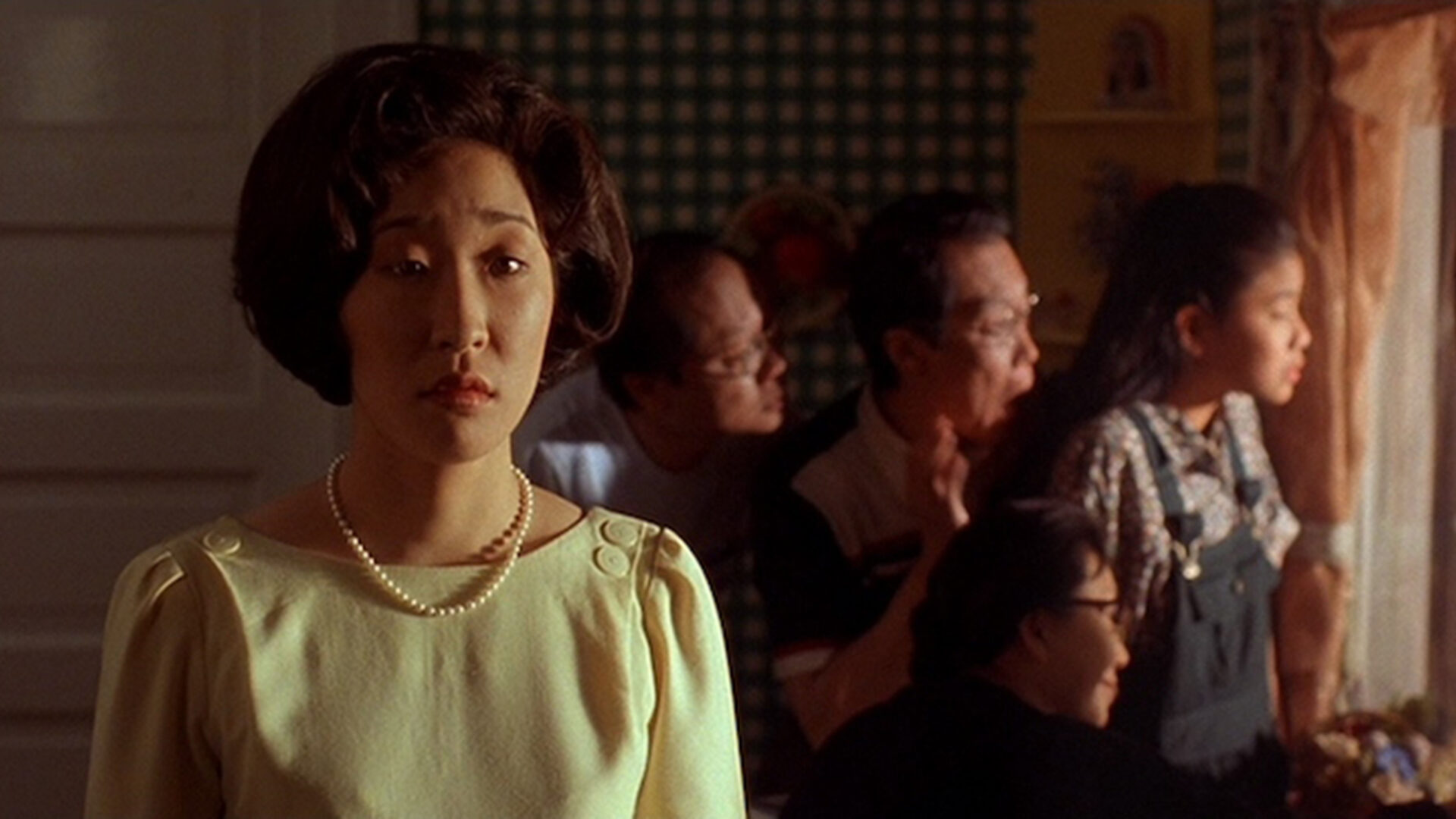In 1994, a then-unknown Sandra Oh starred in two films shot in Vancouver. Ahead of their time in many ways, the pair not only helped launch the career of one of Canada’s most recognizable stars but also established a creative partnership between Oh and writer-director Mina Shum that has lasted three decades.
The Diary of Evelyn Lau, directed by Sturla Gunnarsson with a script by Barry Stevens, and Double Happiness, written and directed by Shum, tell stories centred on young Asian Canadian women struggling against the expectations of culture and family.
The Diary of Evelyn Lau was adapted from Lau’s bestselling memoir Runaway: The Diary of a Street Kid. An aspiring poet whose creative aspirations didn’t match her parents’ wishes, Lau ran away from home at 14. She spent two years living on the streets and in various care homes, sometimes engaging in prostitution while coping with an addiction to Valium and other substances. Lau went on to become one of the most respected writers in the country, winning prizes for poetry and nonfiction, and serving as poet laureate of Vancouver.
Inspired by the death of her son’s friend to make a film about young runaways, Maryke McEwen, producer of the long-running CBC legal drama Street Legal, optioned Lau’s book and enlisted Barry Stevens to adapt it. Stevens, who had worked as a youth counsellor before joining the writing staff of Street Legal, wrote seven drafts before filming began in April 1993. Directing The Diary of Evelyn Lau fell to Reykjavik-born Sturla Gunnarsson, whose first feature, After the Axe, had been nominated for an Oscar.

Oh and Jodie Comer in the fan-favourite Killing Eve, for which Oh won a Golden Globe in 2019. Photo courtesy of BBC America.
Casting the leading role would require a young Asian Canadian actress with a tremendous emotional range. “The girl is the movie,” Gunnarsson was quoted as saying. The producer and casting agents sent out calls to Los Angeles and New York, eventually considering more than 2,000 actresses for the role.
“I knew [Diary] was going to change my life,” Sandra Oh recalled in a video for Vanity Fair. The child of Korean immigrants, she grew up in Nepean, Ontario, performing in comedy troupes and amateur theatricals. She was a student at the National Theatre School when her sister’s friend saw an ad: “It was an open audition call for young Asian actresses.… I remember this feeling of like, ‘This is mine, it’s mine.’ And I knew that I had to play this role.” As Lau, the 20-year-old Oh plays a naive 14-year-old who transforms first into a street-savvy hustler, then an accomplished poet.
The Diary of Evelyn Lau took pains toward authenticity rarely seen with made-for-TV movies. Shot on the streets of Vancouver, including at well-known downtown landmarks like Save On Meats and the waterfront, the film employed actual street kids and sex workers as extras in the film. Oh’s appearance was made equally gritty: as Janice Lee writes in Playback, “Makeup artists, normally hired to make actresses look beautiful, cover Oh with bruises and cigarette burns.”
Related stories
- B.C. Filmmaker Sophy Romvari Faces Ghosts From the Past in Her Award-Winning First Feature
- One of the Great American Novels Was Adapted in Nelson, B.C.
- How Two Stephen King Adaptations Brought the King of Horror to B.C.
In addition to Oh, Diary’s cast included Yan Cui and Linian Liu as Lau’s mother and father, and Nicholas Campbell, Don S. Davis, and Kenneth Welsh as the various men whose paths cross with Lau’s. The small part of a translator would be played by filmmaker Mina Shum—a casting choice that would prove as significant as Oh herself.
“I grew up in a very strict working-class immigrant family,” Shum told CBC. Born in Hong Kong, Shum immigrated to Vancouver with her family when she was a year old. She attended theatre school and made short films, working toward a career in the arts while struggling with her parents’ expectations of marriage and financial stability. On the set of Diary, Shum gave Oh a script she had written called Double Happiness, about a young Chinese Canadian whose desire for independence was similar to Shum’s. The actor and director hit it off, and Oh agreed to star. “It was an amazing meeting,” Oh recalled.

Oh and her cast mates in Double Happiness.
The first widely released feature film by an Asian Canadian woman, Double Happiness follows Jade Li (Oh), an aspiring actress born in Hong Kong but raised in East Vancouver, dealing with family, romance, and her own artistic aspirations. Li’s parents (Alannah Ong and Stephen Chang) want her to find a nice Chinese boyfriend, so when Jade meets the white and awkward Mark (Callum Keith Rennie), she keeps their relationship secret. As an actress, Li battles casting agents who want her to play stereotypical Asian roles, and Chinese filmmakers who expect Cantonese fluency. Alternatingly funny and serious, Li and her family deliver monologues to the camera, expressing the things they can’t say to each other. “I wondered why we couldn’t be like The Brady Bunch,” Li says. “Of course, they didn’t need subtitles.”
The pressures on Li mount, culminating in a long shot of her running past the shipping containers near New Brighton Park, as if trying to outrun the world’s expectations.
Double Happiness won a Genie award for Oh, premiered at the Sundance Film Festival, and earned praise from international critics. “We were really lucky, honestly, because we met each other at the beginning,” Oh said to Shum on an episode of Floored. In the following decades, they worked together on two more films set in Shum’s East Van neighbourhood. In Long Life, Happiness and Prosperity (2002), Oh plays a single mom whose daughter (Valerie Tian) schemes to set her up with the right guy. In Meditation Park (2017), Oh plays the daughter of a traditional Chinese housewife (Cheng Pei Pei) who discovers her husband is having an affair.
The Diary of Evelyn Lau and Double Happiness both tell stories of Chinese Canadian women with artistic ambitions, struggling to deal with traditional families and the misapprehensions of white Canadian culture. Diary’s gritty depiction of a teen runaway and Double Happiness’s playfully monologuing actress serve as strong examples of the range Oh reached later in her career. Soon after their release, Oh moved to L.A., co-starring in films like Sideways before finding mainstream success on the TV shows Grey’s Anatomy and Killing Eve. But it was Oh’s leading roles in 1994’s The Diary of Evelyn Lau and Double Happiness that offered her the first steps to international success while forging a long-term creative collaboration with a talented Vancouver director.
Read more stories about film and TV in B.C.









